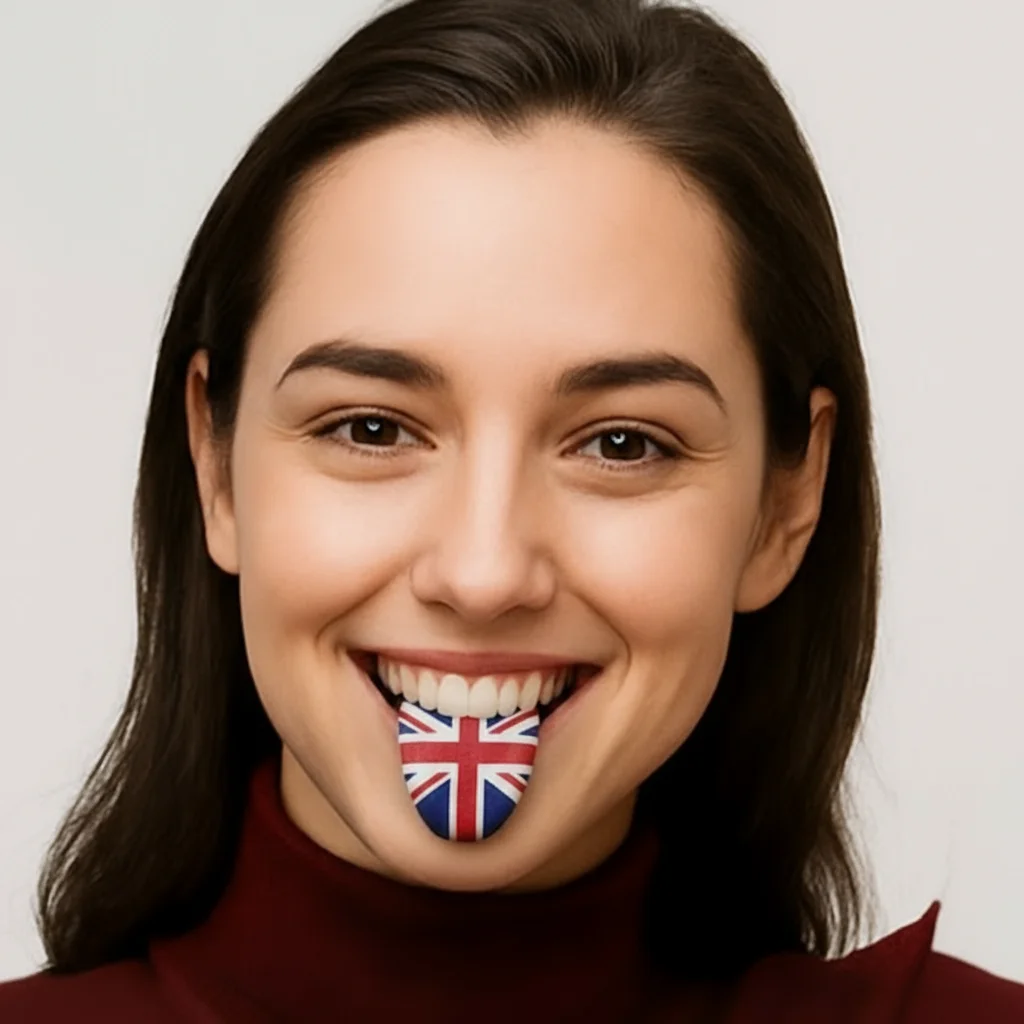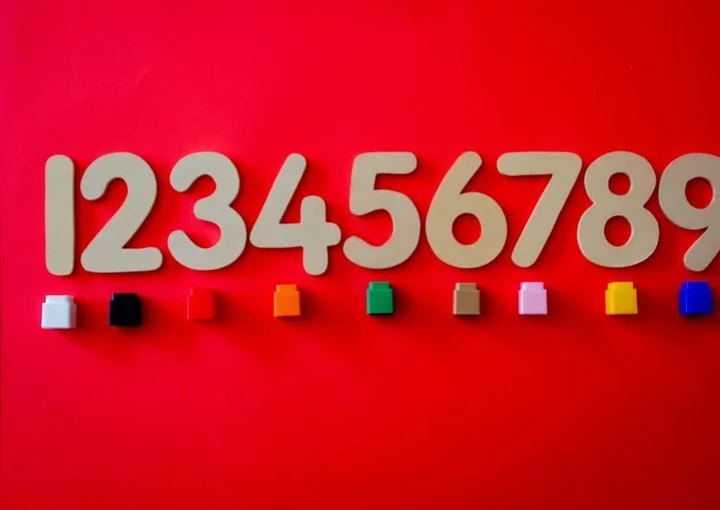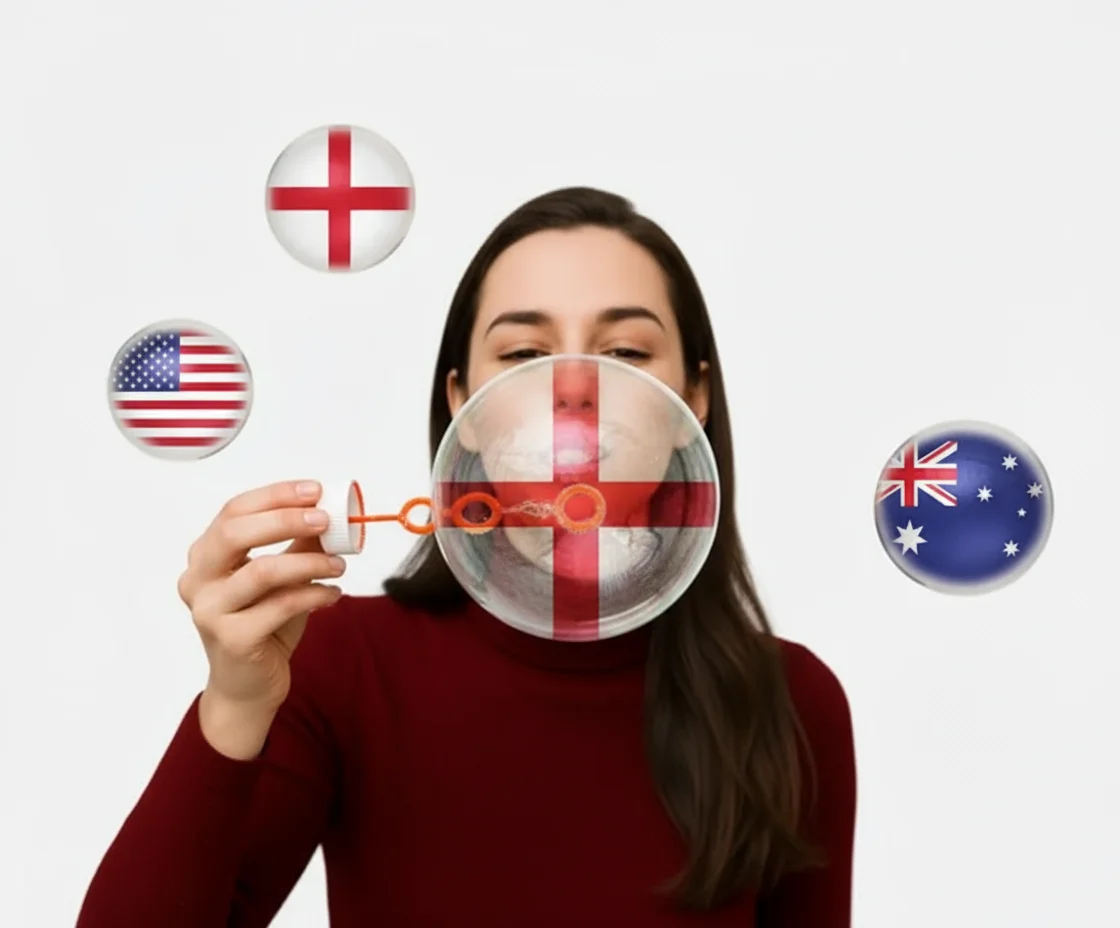Le tableau de conjugaison en anglais : comprendre les temps verbaux avec clarté et méthode
Maîtriser les bases de l’anglais ne se limite pas à connaître quelques règles linguistiques isolées. C’est avant tout comprendre la logique de la langue, ses mécanismes grammaticaux et la manière dont les temps verbaux s’articulent entre eux. Et parmi les outils essentiels pour structurer cet apprentissage, le tableau de conjugaison en anglais occupe une place centrale.
Le tableau de conjugaison en anglais : en apparence simple, il est omniprésent dans l’apprentissage de la langue, aussi bien à l’écrit qu’à l’oral. Il permet de visualiser les temps verbaux, de comprendre les formes régulières et irrégulières, et d’identifier rapidement la structure correcte d’un verbe selon le contexte. Pourtant, les confusions sont fréquentes — notamment entre les temps simples et continus, les auxiliaires, ou l’usage du présent, du passé et du futur — et peuvent nuire à la clarté et à la précision du discours.
C’est précisément pour éviter ces erreurs que notre approche pédagogique repose sur des tableaux clairs, des exemples concrets et des mises en contexte progressives. Vous apprenez à lire et utiliser un tableau de conjugaison en anglais, à comprendre la logique des temps verbaux et à les appliquer correctement dans vos phrases, aussi bien à l’oral qu’à l’écrit.
Un seul objectif : faire du tableau de conjugaison en anglais un outil fiable, lisible et parfaitement maîtrisé, afin de conjuguer avec justesse, fluidité et assurance dans tous vos échanges en anglais, en France comme à l’international.
Un apprentissage innovant
Notre pédagogie repose sur des outils innovants, conçus pour ancrer durablement la différence entre prétérit et participe passé et faciliter votre progression :
Badges de progression pour suivre vos étapes et rester motivé
Planning personnalisé adapté à votre emploi du temps
Micro-learning quotidien avec rappel de vocabulaire ou verbe du jour
Feedback instantané grâce à l’intelligence artificielle (oral et écrit)
Coach dédié qui suit votre évolution semaine après semaine
Un parcours à votre rythme, mais jamais seul.
Certifications éligibles au CPF
– VTEST (Virtual Test of English Skills) : test en ligne adaptatif évaluant votre anglais professionnel, à l’écrit et à l’oral. (moncompteformation.gouv.fr)
– TOEIC (Test of English for International Communication) : Référence mondiale pour évaluer les compétences en anglais professionnel.
– BLISS (Bright Language International Speaking Solution) : Test évaluant les compétences de communication orale en milieu professionnel.
Audio : quel est le prix d'une formation en anglais ?
Plaisir d'échanger en Anglais

12 minutes de lecture
Verbes Réguliers
Tableau de conjugaison en anglais
Tableau de conjugaison en anglais
Verbes Réguliers
Les verbes réguliers suivent des schémas prévisibles. Prenons le verbe « to walk » (marcher) comme exemple :
| Sujet | Présent Simple | Passé Simple | Participe Passé | Exemple Présent | Exemple Passé |
|---|---|---|---|---|---|
| I | walk | walked | walked | I walk to school every day. | I walked to school yesterday. |
| You | walk | walked | walked | You walk to work every day. | You walked to work yesterday. |
| He/She/It | walks | walked | walked | She walks in the park daily. | She walked in the park yesterday. |
| We | walk | walked | walked | We walk together every evening. | We walked together last evening. |
| You (pl.) | walk | walked | walked | You walk to the gym regularly. | You walked to the gym last week. |
| They | walk | walked | walked | They walk their dog daily. | They walked their dog yesterday. |

Verbes Irréguliers
Tableau de conjugaison en anglais

Tableau de conjugaison en anglais
Verbes Irréguliers
Les verbes irréguliers ne suivent pas toujours les règles de conjugaison régulières. Prenons le verbe « to be » (être) et « to have » (avoir) comme exemples :
Verbe Irrégulier : To Be
| Sujet | Présent Simple | Passé Simple | Participe Passé | Exemple Présent | Exemple Passé |
|---|---|---|---|---|---|
| I | am | was | been | I am happy today. | I was happy yesterday. |
| You | are | were | been | You are early this morning. | You were early yesterday morning. |
| He/She/It | is | was | been | She is at the office. | She was at the office yesterday. |
| We | are | were | been | We are ready for the trip. | We were ready last week. |
| You (pl.) | are | were | been | You are great friends. | You were great friends in school. |
| They | are | were | been | They are at home. | They were at home last night. |
Présent, Passé et Futur Simples
Tableau de conjugaison en anglais
Tableau de conjugaison en anglais
Présent, Passé et Futur Simples
| Sujet | Présent Simple | Passé Simple | Futur Simple | Exemple Présent | Exemple Passé | Exemple Futur |
|---|---|---|---|---|---|---|
| I | walk | walked | will walk | I walk to school every day. | I walked to school yesterday. | I will walk to school tomorrow. |
| You | walk | walked | will walk | You walk to work every day. | You walked to work yesterday. | You will walk to work tomorrow. |
| He/She/It | walks | walked | will walk | She walks in the park daily. | She walked in the park yesterday. | She will walk in the park tomorrow. |
| We | walk | walked | will walk | We walk together every evening. | We walked together last evening. | We will walk together tomorrow evening. |
| You (pl.) | walk | walked | will walk | You walk to the gym regularly. | You walked to the gym last week. | You will walk to the gym next week. |
| They | walk | walked | will walk | They walk their dog daily. | They walked their dog yesterday. | They will walk their dog tomorrow. |

Présent, Passé et Futur Continus
Tableau de conjugaison en anglais

Tableau de conjugaison en anglais
Présent, Passé et Futur Continus
| Sujet | Présent Continu | Passé Continu | Futur Continu | Exemple Présent Continu | Exemple Passé Continu | Exemple Futur Continu |
|---|---|---|---|---|---|---|
| I | am walking | was walking | will be walking | I am walking to school now. | I was walking to school when it started to rain. | I will be walking to school at 8 AM. |
| You | are walking | were walking | will be walking | You are walking to work right now. | You were walking to work when I called. | You will be walking to work at 9 AM. |
| He/She/It | is walking | was walking | will be walking | She is walking in the park currently. | She was walking in the park yesterday afternoon. | She will be walking in the park at 5 PM. |
| We | are walking | were walking | will be walking | We are walking together now. | We were walking together when it started to rain. | We will be walking together at 6 PM. |
| You (pl.) | are walking | were walking | will be walking | You are walking to the gym now. | You were walking to the gym when it started to rain. | You will be walking to the gym at 7 PM. |
| They | are walking | were walking | will be walking | They are walking their dog right now. | They were walking their dog when it started to rain. | They will be walking their dog at 8 PM. |
Présent, Passé, et Futur Parfaits
Tableau de conjugaison en anglais
Tableau de conjugaison en anglais
Présent, Passé, et Futur Parfaits
| Sujet | Présent Parfait | Passé Parfait | Futur Parfait | Exemple Présent Parfait | Exemple Passé Parfait | Exemple Futur Parfait |
|---|---|---|---|---|---|---|
| I | have played | had played | will have played | I have played tennis many times. | I had played tennis before it started raining. | I will have played tennis by 5 PM. |
| You | have played | had played | will have played | You have played guitar well. | You had played guitar before the party started. | You will have played guitar by the time the guests arrive. |
| He/She/It | has played | had played | will have played | She has played soccer for years. | She had played soccer before moving to a new city. | She will have played soccer by 4 PM. |
| We | have played | had played | will have played | We have played video games together. | We had played video games before the power went out. | We will have played video games by tonight. |
| You (pl.) | have played | had played | will have played | You have played in the band for a long time. | You had played in the band before the concert. | You will have played in the band by the time the concert starts. |
| They | have played | had played | will have played | They have played chess for years. | They had played chess before joining the club. | They will have played chess by the end of the day. |

Présent, Passé, et Futur Parfaits Continus
Tableau de conjugaison en anglais

Tableau de conjugaison en anglais
Présent, Passé, et Futur Parfaits Continus
| Sujet | Présent Parfait Continu | Passé Parfait Continu | Futur Parfait Continu | Exemple Présent Parfait Continu | Exemple Passé Parfait Continu | Exemple Futur Parfait Continu |
|---|---|---|---|---|---|---|
| I | have been playing | had been playing | will have been playing | I have been playing tennis for an hour. | I had been playing tennis for an hour when it started raining. | I will have been playing tennis for an hour by 5 PM. |
| You | have been playing | had been playing | will have been playing | You have been playing guitar for two hours. | You had been playing guitar for two hours when I called. | You will have been playing guitar for two hours by 6 PM. |
| He/She/It | has been playing | had been playing | will have been playing | She has been playing soccer since 3 PM. | She had been playing soccer for an hour before moving. | She will have been playing soccer for an hour by 4 PM. |
| We | have been playing | had been playing | will have been playing | We have been playing video games since noon. | We had been playing video games for an hour before the power went out. | We will have been playing video games for an hour by tonight. |
| You (pl.) | have been playing | had been playing | will have been playing | You have been playing in the band since 5 PM. | You had been playing in the band for an hour before the concert. | You will have been playing in the band for an hour by the time the concert starts. |
| They | have been playing | had been playing | will have been playing | They have been playing chess since this morning. | They had been playing chess for an hour before joining the club. | They will have been playing chess for an hour by the end of the day. |
Exemple : "to play" (jouer)
Tableau de conjugaison en anglais
Tableau de conjugaison en anglais
Exemple : « to play » (jouer)
| Temps | I | You | He/She/It | We | You (pl.) | They |
|---|---|---|---|---|---|---|
| Présent Simple | play | play | plays | play | play | play |
| Passé Simple | played | played | played | played | played | played |
| Futur Simple | will play | will play | will play | will play | will play | will play |
| Présent Continu | am playing | are playing | is playing | are playing | are playing | are playing |
| Passé Continu | was playing | were playing | was playing | were playing | were playing | were playing |
| Futur Continu | will be playing | will be playing | will be playing | will be playing | will be playing | will be playing |
| Présent Parfait | have played | have played | has played | have played | have played | have played |
| Passé Parfait | had played | had played | had played | had played | had played | had played |
| Futur Parfait | will have played | will have played | will have played | will have played | will have played | will have played |
| Présent Parfait Continu | have been playing | have been playing | has been playing | have been playing | have been playing | have been playing |
| Passé Parfait Continu | had been playing | had been playing | had been playing | had been playing | had been playing | had been playing |
| Futur Parfait Continu | will have been playing | will have been playing | will have been playing | will have been playing | will have been playing | will have been playing |

REJOIGNEZ CABINET ACTION
Apprendre le conditionnel en anglais
Au sein du Cabinet Action, nous vous guiderons dans le développement de compétences authentiques en anglais.
Notre approche pédagogique repose sur des ateliers ludiques, mettant l’accent sur la compréhension orale et écrite, les sketchs, ainsi que les débats.
Les cours du Cabinet Action offrent des avantages notables, tels que :
- Des ressources d’apprentissage personnalisées adaptées à tous les niveaux,
- Des échanges et voyages à l’étranger pour faciliter votre formation en anglais,
- Des cours à distance flexibles selon votre emploi du temps, le tout encadré par des enseignants qualifiés en langue anglaise.
Rejoignez notre groupe sur le site du Cabinet Action pour bénéficier de notre assistance et échanger sur vos questions d’anglais.
Pour en savoir plus, visitez https://cabinetaction.fr/
UN BILAN D'ANGLAIS GRATUIT,
CA VOUS DIT ?
Nos coachs diplômés vous invitent à l’un de nos ateliers gratuits afin d’élaborer une stratégie d’apprentissage complètement personnalisée !
Prêt à avoir un meilleur niveau d’anglais ? Let’s go !
FORMEZ VOUS À L'ANGLAIS
RAPIDEMENT ET MIEUX !

Découvrez l’importance des jours de la semaine en anglais avec le Cabinet Action !
On vous accompagne dans l’apprentissage de cet outil pour maîtriser la langue anglaise.

Découvrez comment renforcer vos connaissances dans le domaine linguistique avec nos ressources spécialisées.
Le Cabinet Action vous accompagne !

Explorez notre guide pour maîtriser les verbes irréguliers de base et avancés en anglais.
Que ce soit pour les affaires, les voyages ou la vie quotidienne.

Explorez le Pouvoir des Notations AM et PM en Anglais avec le Cabinet Action.
Découvrez comment ces petites abréviations temporelles peuvent faire une grande différence dans la clarté et la précision de votre communication écrite et orale. Maîtriser l’utilisation correcte de AM et PM vous permettra de briller dans tous les aspects de votre vie professionnelle et personnelle.

Bienvenue au Cabinet Action, où nous explorons l’importance des 500 mots essentiels à connaître en anglais et comment ils peuvent transformer votre maîtrise de la langue pour atteindre de nouveaux sommets dans votre vie personnelle et professionnelle.

Découvrez les 19 manières uniques de dire « de rien » en anglais avec le Cabinet Action, explorant ainsi les nuances de la gratitude et de la générosité dans la langue anglaise pour enrichir vos interactions et exprimer votre reconnaissance de manière authentique.
Anglais british
L’anglais britannique, c’est une symphonie d’accents distincts, de l’élégance londonienne au charme écossais. Les termes uniques, comme « lorry » pour camion, ajoutent une couleur captivante à cette danse linguistique britannique.
Anglais australien
En Australie, l’anglais brille avec des accents régionaux, comme l’accent australien standard, et charme avec des termes uniques, comme « ute » pour utilitaire. C’est une aventure linguistique où chaque mot a son propre accent.
Anglais indien
En Inde, l’anglais prend des accents uniques influencés par les langues locales. Le vocabulaire, riche et coloré, offre des termes comme « kurta » pour un style vestimentaire masculin traditionnel, créant une fusion linguistique vibrante.
Anglais américain
Aux États-Unis, l’anglais est une symphonie d’accents régionaux, du Southern drawl au Midwest. Les différences de vocabulaire ajoutent une touche pétillante, avec des « apartments » et des « cookies » qui donnent une cadence unique à la langue américaine.
Anglais canadien
Au Canada, l’anglais danse entre des influences britanniques et américaines. Les accents régionaux, avec le « Canadian raising » en prime, apportent une symphonie linguistique unique. Les termes comme « toque » pour bonnet ajoutent une touche canadienne à cette expérience linguistique.
Anglais sud-africain
En Afrique du Sud, l’anglais partage la scène avec l’afrikaans et le zoulou. Un mélange unique d’influences linguistiques crée un anglais sud-africain vibrant, enrichi de mots empruntés à ces langues voisines.



